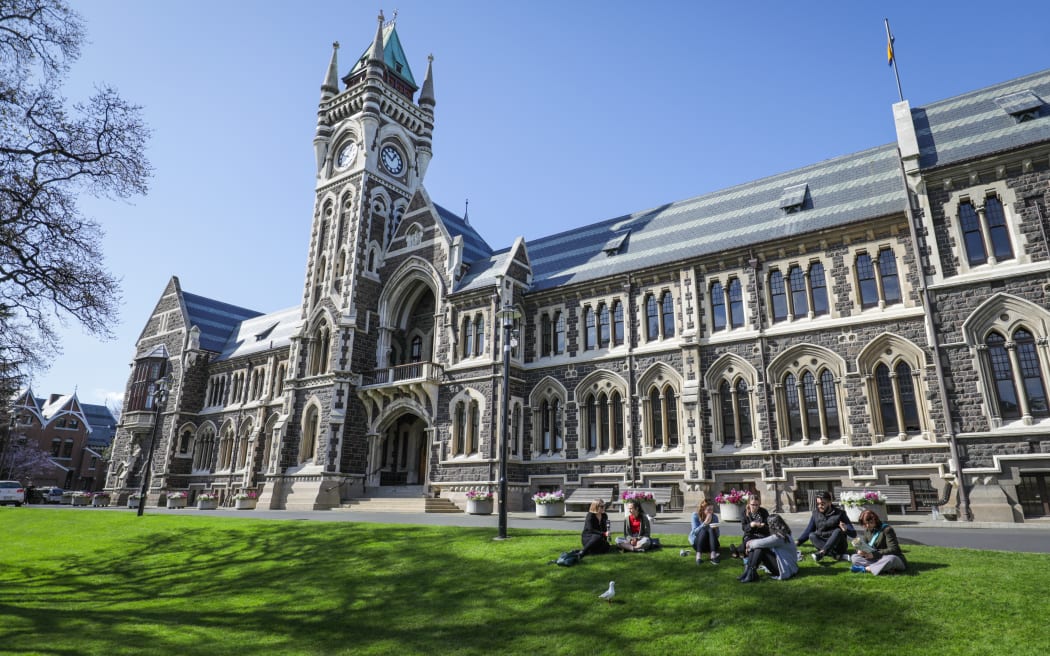
The University of Otago and Victoria University of Wellington Te Herenga Waka asked that funding not be reduced this year but instead recovered in 2024. Photo: RNZ / Nate McKinnon
A Tertiary Education Commission paper shows it expects to claw back $107.7 million from four universities and Te Pūkenga due to low enrolments.
The July briefing to Education Minister Jan Tinetti said Massey, Victoria and Otago universities, AUT and Te Pūkenga's polytechnics were forecast to enrol significantly fewer students than the commission had agreed to fund them for this year.
It said the commission trimmed institutions' funding when enrolments were below 99 percent of what it agreed to pay for.
In this case it would reduce the organisations' funding by $51.8m this year and claw back the remainder next year.
It said Otago and Victoria asked that funding not be reduced this year but the commission did not want to make exceptions.
"Given the financial challenges, Otago and VUW have asked the TEC not to adjust funding during 2023 (and instead recover in 2024) to support their cash position.
"This is particularly important for VUW, which has significant under-delivery and is forecasting access to cash to be tight at the end of the year.
"We have been clear to the sector that we will be continuing to follow our usual process of recovering funding within the year. There is a risk with the proposed approach that TEC is seen as exacerbating the financial issues in the university sector, particularly for VUW," the report said.
"The university sector has also asked that the current threshold used to limit recoveries to below 99 percent of allocations be lowered this year (typically the request is for it to be moved back to 97 percent where it sat until 2012).
"Our response to this request has been that this threshold is set by Cabinet, not the TEC, and we must recover in line with the ministerial funding determination."
The report said the commission had already begun making clawbacks from private institutions and wānanga, and those organisations would likely oppose preferential treatment for universities and Te Pūkenga.
It was not the role of the TEC to support tertiary organisations' financial viability by deferring the recovery of funds, it said. Overall accountability for financial performance must remain with each institution's council.
The commission did not require ministerial approval for these standard operational decisions, but wanted to alert the minister because its actions could attract criticism.
"Given the continued media attention and political commentary on university financial pressures, and their response to these challenges (particularly reductions in staff and closure of programmes), the funding adjustments may be perceived as the TEC 'taking money away' from universities.
"This comes with added reputational risk to the TEC and you as Minister. As such, we consider it appropriate to inform you of our intended actions," the briefing said.







